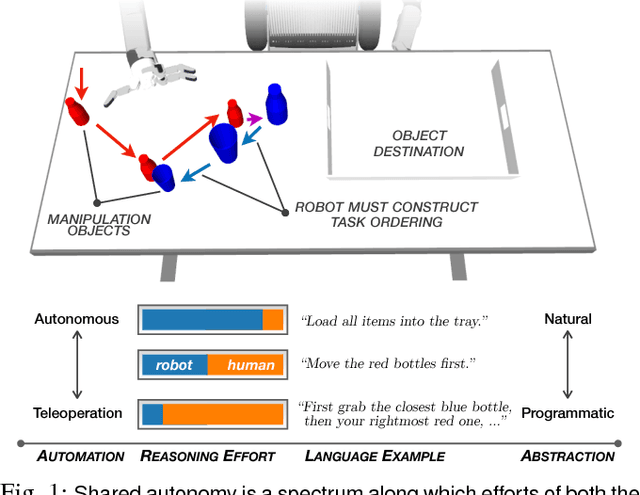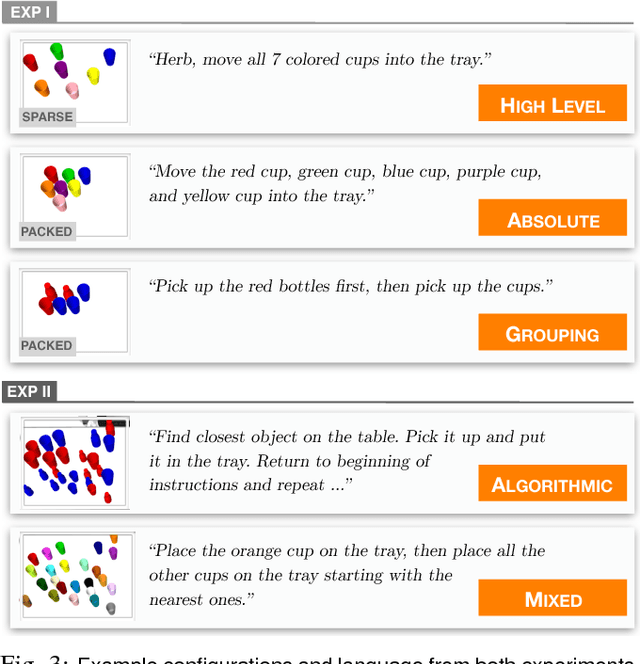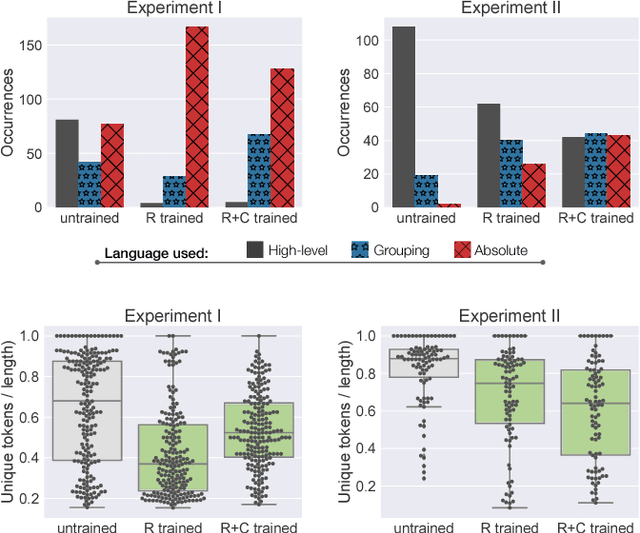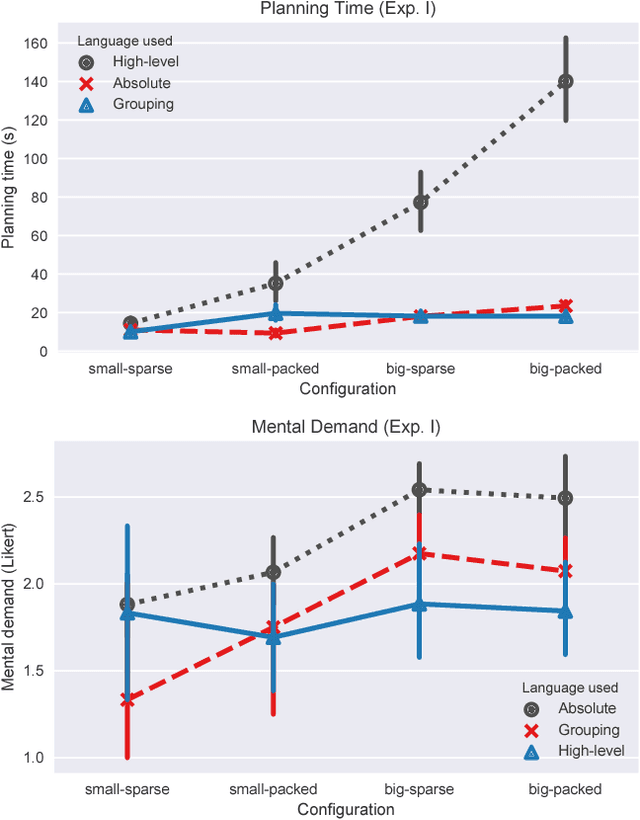Balancing Shared Autonomy with Human-Robot Communication
Paper and Code
May 20, 2018



Robotic agents that share autonomy with a human should leverage human domain knowledge and account for their preferences when completing a task. This extra knowledge can dramatically improve plan efficiency and user-satisfaction, but these gains are lost if communicating with a robot is taxing and unnatural. In this paper, we show how viewing humanrobot language through the lens of shared autonomy explains the efficiency versus cognitive load trade-offs humans make when deciding how cooperative and explicit to make their instructions.
 Add to Chrome
Add to Chrome Add to Firefox
Add to Firefox Add to Edge
Add to Edge